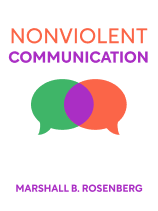

This article is an excerpt from the Shortform book guide to "Nonviolent Communication" by Marshall B. Rosenberg. Shortform has the world's best summaries and analyses of books you should be reading.
Like this article? Sign up for a free trial here .
Why does expressing empathy make people feel so uncomfortable? What can you do to overcome these feelings and learn to empathize in a more authentic and natural way?
Expressing empathy can feel strange, especially when we’re not used to talking aboexpressiut emotions at all. But mastering this skill is important because empathy is it related to many socio-psychological life outcomes.
Read about the importance of expressing empathy and how it can help you relate to others on a more authentic and meaningful level.
Expressing Empathy Requires Vulnerability
The power of empathy affects both the speaker and the listener. When you offer someone deep, focused attention and keep your focus on their feelings and needs, it often becomes much easier to relate to them on a human level. For the speaker, having those feelings and needs fully heard and understood often provides enormous relief—in many conflicts, true empathy may be all it takes to fully resolve the problem.
Expressing empathy requires vulnerability, which is especially difficult when there is an uneven power dynamic at play. For example, when talking to your boss, it might be difficult to open up for fear of seeming presumptuous or admitting to anything that might compromise your work performance. In these situations, empathy can help you transcend hierarchy and relate to each other more genuinely.
Even in situations where we’re on equal footing with another person, expressing empathy can make it easier to connect authentically. In everyday conversation, being vulnerable and opening up about our feelings and needs can be scary. But the more we offer empathy to the other person, the easier that kind of vulnerability becomes, since focusing on that person as a human with feelings and needs just like us makes opening up seem far less intimidating.
Empathy and Conversation
Empathy can also help with everyday issues like boring, lifeless conversations. Many times, when someone drones on incessantly, tells the same stories over and over, or sticks to banal topics like the weather, it is a sign that they are disconnected from their own feelings and needs in that moment. Interrupting with empathy can help the speaker connect to what they’re really trying to express and revive the conversation for everyone. For example, if a friend is telling you the story of his breakup for the twentieth time, you might interrupt with, “Wow, it sounds like you’re still feeling really hurt because you needed him to show you more respect.”
Of course, interrupting someone while they’re speaking is often considered rude, but in this case, it’s the kind thing to do. The goal is not to talk over someone or shut them up—the goal is to give them the empathy that they may not even realize they’re asking for.
Let’s look at this from the speaker’s perspective. Imagine you’ve been talking to someone who is totally bored with what you’re saying and counting the minutes until they can excuse themselves politely. Would you rather they pretend to listen, or interrupt you to express genuine empathy and their desire to connect? When asked that question, most people would rather be interrupted than humored because no one wants to be a burden or a bore.
Empathy and Physical Violence
In volatile situations where there is potential for violence, expressing empathy to create common ground becomes even more important. For example, Rosenberg tells the story of a young woman who worked at a drug detoxification center and attended several NVC workshops. One night, while working alone, a man walked in off the street demanding a bed—when she explained that all their beds were full, he threw her to the ground and pulled out a knife, screaming that he knew she was lying and that he deserved more respect.
In that situation, the woman’s first instinct was to defend herself by arguing that they truly did not have any beds, but she stopped herself and focused instead on empathizing by reflecting the man’s feelings back to him, beginning with, “It sounds like you’re really angry.” After a full 35 minutes of expressing empathy, the man finally got up, put the knife away, and allowed the woman to help him find a room at another detox center.

———End of Preview———
Like what you just read? Read the rest of the world's best book summary and analysis of Marshall B. Rosenberg's "Nonviolent Communication" at Shortform .
Here's what you'll find in our full Nonviolent Communication summary :
- How nonviolent communication lets you have more compassion for yourself
- Why nonviolent communication is the key to fostering authentic connections with others
- The 4 steps to expressing yourself with empathy towards others






